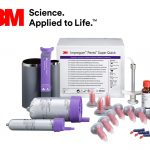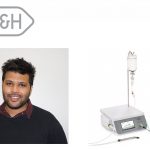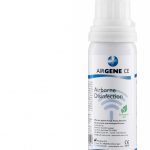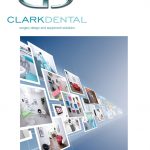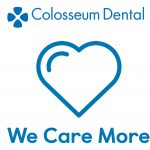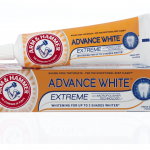A renewed commitment to a healthier lifestyle is something that you are likely seeing more of with your patients. The threat to our wellbeing that we have all faced has inspired lots of us to make changes and adopt proactive, positive behaviours in order to enjoy a better quality of life.
People have always been interested in maintaining good health and every decade has had its own trends. Most recently, there has been a growing focus on nutritional choices, including plant-based eating, buying organic, also food sustainability and provenance.
But we must consider what we drink, as well as what we eat. There is a perception that, in the UK, we consume too much alcohol. However, in 2019, a modelling study published in The Lancet found that people in Great Britain were actually drinking less than they were three decades ago, and consumption was expected to fall even further by 2030.[i]
The modelling did not account for a worldwide pandemic, of course. Respondents to research commissioned by Alcohol Change UK at the start of the first national lockdown stated they were drinking more, more frequently.[ii] This is perhaps unsurprising when work, social and family structures were turned on their heads, with little warning. Later in the year, during the second national lockdown, the evidence seemed to indicate that older age groups were still drinking more and becoming increasingly reliant on alcohol to numb any feelings of loneliness, isolation and the sense that a return to anything like “normality” was a long way off.[iii]
The focus on older age groups is important, as many younger people in the UK appear to have a different relationship with alcohol than their parents do or did at the same age.[iv] The reasons why they could be turning their backs on alcohol range from cost, the rise of the “sober curious” movement on social media (sobriety promoted as an aspirational lifestyle choice), to wanting to avoid the crushing anxiety that can be brought on by a hangover.
Any patient with a serious alcohol dependency should be supported with accessing specialist services but, for everyone else, whatever their age, oral health practitioners now have an opportunity to discuss with them where alcohol belongs in their pursuit of a healthier lifestyle.
The NHS gives guidance for alcohol consumption, while being clear that there is no “safe” level of drinking.[v] In dental consultations, alcohol is a highly relevant subject as patients might not realise the range of oral health impacts from consuming just a small amount, beyond having a parched mouth the morning after. There is a wealth of clinical evidence to link alcohol to oral disease, including cancers of the head and neck, periodontal diseases and caries, as well as conditions like halitosis, and these impacts should be talked about in depth.[vi]
Excessive alcohol consumption is a major risk factor for several types of oral cancer, and this risk increases “synergistically with smoking, with a risk ratio of 2.92 and 6.32 respectively”.[vii] Alcohol and tobacco are carcinogens and, although it is not yet fully understood why drinking and tobacco together increase the risk of cancer so drastically, several possible explanations have been explored.[viii]
Similarly, associations between periodontal disease and alcohol consumption have been widely investigated although, again, the mechanism of this action remains unknown.[ix] Regarding caries development, various lifestyle factors will need to be taken into consideration when looking for a causal link with alcohol; the heaviest drinkers tend to have more decay and apical lesions, which may also be the impact of poor oral health practises, such as infrequent, ineffective toothbrushing.[x] As for moderate drinkers, most alcoholic drinks are high in sugar, which can impede a healthy salivary flow. A factor for caries’ development, this is also partly responsible for that dehydrated feeling the day after a drinking session, as well as malodorous breath. Certain drinks stain the teeth; red wine will also discolour restorative materials.[xi]
These are just some of the oral health impacts of alcohol; to mitigate the effect on their teeth (as well as their head), patients could have a glass of plain water between drinks and also practise excellent mouth hygiene, every day. Particularly if they are interested in using products containing natural ingredients, Arm & Hammer™ toothpastes have baking soda added to their formulations, a powerful ingredient clinically recognised to enhance plaque removal.[xii] The addition of baking soda makes the toothpastes low abrasive, and it is also an ingredient that will whiten teeth; Arm & Hammer™ Advance White™ will naturally remove surface stains with micro polisher technology for up to 3 shades whiter teeth in 6 weeks.
Many patients are simply unaware of the wide-ranging impact alcohol can have on their oral health and anyone who is exploring how to enjoy a better quality of life must honestly consider and audit their consumption. Oral health practitioners are ideally placed to explore the topic of alcohol and educate them on the ways in which they can mitigate its effects.
For more information about the carefully formulated Arm & Hammerä toothpaste range, please visit https://www.armandhammer.co.uk/ or email: ukenquiries@churchdwight.com
Arm & Hammerä oral healthcare products are available at Boots, Superdrug, Sainsbury’s, Tesco, Asda and Morrisons throughout the UK.
[i] Manthey J, Shield KD, Rylett M, Hasan OS, Probst C, Rehm J. Global alcohol exposure between 1990 and 2017 and forecasts until 2030: a modelling study. The Lancet. 2019 Jun 22;393 (10190): 2493-502.
[ii] Drinking during lockdown: headline findings. Alcohol Change UK, July 2020. Link https://alcoholchange.org.uk/blog/2020/drinking-in-the-uk-during-lockdown-and-beyond (accessed December 2020).
[iii] Binge drinking among over-50s rising amid pandemic, says UK charity. The Guardian, 18 November 2020. Link: https://www.theguardian.com/society/2020/nov/18/binge-drinking-among-over-50s-rising-amid-pandemic-says-uk-charity (accessed December 2020).
[iv] Adult drinking habits in Great Britain: 2017. Office for National Statistics, published May 2018. Link: https://www.ons.gov.uk/peoplepopulationandcommunity/healthandsocialcare/drugusealcoholandsmoking/bulletins/opinionsandlifestylesurveyadultdrinkinghabitsingreatbritain/2017 (accessed December 2020).
[v] NHS Live Well, Alcohol Units, link: https://www.nhs.uk/live-well/alcohol-support/calculating-alcohol-units/ (accessed December 2020).
[vi] Grocock R. The relevance of alcohol to dental practice. British Dental Journal. 2017 Dec; 223 (12): 895.
[vii] Grocock R.
[viii]Boffetta P, Hashibe M. Alcohol and cancer. The Lancet Oncology. 2006 Feb 1;7 (2): 149-56.
[ix] Grocock R.
[x] Jansson L. Association between alcohol consumption and dental health. J Clin Periodontal 2008; 35: 379–384.
[xi] Omata Y, Uno S, Nakaoki Y et al. Staining of hybrid composites with coffee, Oolong tea, or red wine. Dent Mater J 2006; 25: 125–131.
[xii] Bosma, M. et al. A randomised controlled trial to evaluate the plaque removal efficacy of sodium bicarbonate dentifrices in a single brushing clinical model. BDJ Open 4, 17037 (2018). https://www.nature.com/articles/s41405-018-0003-7#citeas (accessed December 2020)




